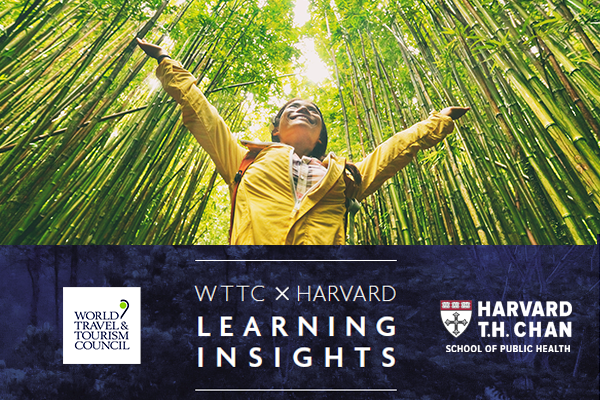LONDON, 22 June 2021: The World Travel & Tourism Council (WTTC), and the Harvard TH Chan School of Public Health, released four research insight papers at the weekend to support the pursuit of sustainability in travel and tourism.
The research insights will support decision-makers in travel and tourism to broaden their understanding of sustainability as it relates to policies and practice in the sector.

WTTC hopes the research insights will help move the agenda beyond immediate operational impacts, with sustainability positioned as central to long-term business success. Indeed, many private sector organisations in travel and tourism embed sustainability into their strategy.
The learning insights focus on four key sustainability-related issues, notably: setting science-based targets in Travel & Tourism; adopting a culture of health to advance sustainable Travel & Tourism; behavioural economics in travel and tourism; and leadership in sustainability.
Key insights include
Align business strategy with global commitments.
Translate environmental benefits secured by climate action, such as switching to renewable energy sources and transitioning to electric vehicles, among others.
Make sustainability the default option and an expected norm.
Simplify options and choice sets, incorporating sustainability as the most likely option a traveller will make.
Visualise pro-sustainability choices and behaviours, where possible.
Invest in sustainability education and training to drive sustainability at all levels, including board members.
Ensure sustainability leadership traits, attributes and impact are woven into staff development plans, appraisal, and reward mechanisms.
Commenting on the insights, WTTC senior vice president and acting CEO Virginia Messina said: “We are delighted to be working with the Harvard TH Chan School of Public Health once again – a leading academic institution globally.
“Sustainability has become an integral part of the new normal that we see the sector move towards, and it’s clear that businesses must learn to integrate it as part of their organisational DNA if they want to thrive in a post-COVID world.”
To read the learning insights in full, please click here.







